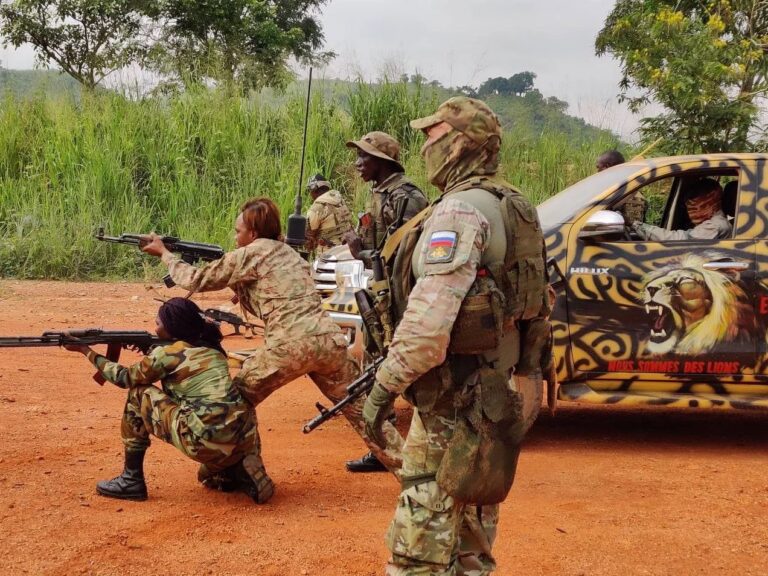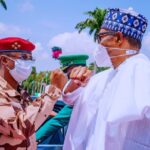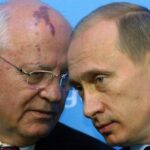1. Introduction
As the Kremlin confronts a labor shortage fueled by military mobilization and escalating economic isolation, Russia has increasingly turned to foreign nationals—especially from African nations—to sustain its defense-industrial base. This practice is part of a broader Kremlin strategy: to replenish its depleted workforce, ramp up military production, and deepen political and economic leverage across the Global South.
2. Why African Nationals Are Being Recruited
• Labor Deficit in the Defense Sector:
With hundreds of thousands of Russian workers conscripted, emigrated, or sidelined by sanctions, defense facilities face a critical manpower vacuum. The only viable alternative: external labor sources.
• Sanctions and “Internal Import Substitution”:
Sanctions have compelled Russia to revert to labor-intensive manufacturing, with hastily trained workers filling the gaps once occupied by advanced technologies.
• Political and Economic Fragility in African States:
The Kremlin exploits poverty, corruption, and institutional weakness across African nations, recruiting their citizens through labor exchange programs, private military contractors (PMCs), or even under the guise of educational scholarships.
3. Modes of Recruitment and Labor Roles
• Contract Work via Intermediaries:
Russian PMCs—chief among them the successors of the Wagner Group—and affiliated recruitment firms lure African workers with promises of competitive wages. Once inside Russia, many find themselves in conditions resembling forced labor.
• Factory Work in Defense Hubs:
African nationals are funneled into jobs in industrial centers like Tula, Nizhny Novgorod, and the Urals, performing manual labor in assembly lines, logistics, and low-skilled operations—often without formal work permits.
• University Enrollments as Cover:
Some African students are rerouted to defense plants, especially after losing scholarships or falling into debt traps.
4. Countries of Origin
The main labor “donors” include:
- Mali, Central African Republic, Burkina Faso, Chad – Where Russian state and quasi-state security entities are deeply entrenched.
- DR Congo, Cameroon, Nigeria, Eritrea – Recruited through Russian “cultural centers.”
- Ethiopia, Uganda – Drawn via educational programs that often transition into exploitative labor arrangements.
5. Consequences
For Russia:
- Short-term gains in defense production.
- Expanded economic-political influence via “labor debt” and dependency.
- Risks of mutinies or intelligence leaks—especially if African workers access combat zones or classified installations.
For African Nations:
- Diplomatic fallout over the implicit participation of their citizens in Russia’s war effort against Ukraine.
- Undermining the African Union’s stated neutrality in the European conflict.
- Violation of the foundational OAU Convention on the Elimination of Mercenarism in Africa (1977).
- Embarrassment for African governments amid reports of students or workers killed in combat or industrial accidents.
- Opportunities for rogue states (e.g., Iran, North Korea) and criminal networks to mimic Russia’s recruitment strategies.
- Brain drain among the continent’s most dynamic youth.
- Spread of labor exploitation and human trafficking—breaching international obligations.
- “Labor migration” as a foreign policy tool for the Kremlin.
- Public outrage at African governments from families of those exploited or killed.
- Risk of destabilization upon the return of battle-hardened African nationals—potential recruits for insurgent movements or Russian PMCs operating in Africa.
For the West:
- Growing Russian leverage in Global South nations.
- Potential grounds for sanctions against firms and individuals complicit in labor exploitation.
- Security risks tied to African operatives infiltrating European defense infrastructure.
- Expanded Russian intelligence operations among African migrant communities in the U.S., Canada, and the EU—using job offers as Trojan horses.
6. Historical Context
The Soviet Union once offered African students education and training—often with ideological underpinnings. Today’s Russia is driven by raw pragmatism. It instrumentalizes poverty and hopelessness, exposing a darker reality: Moscow does not seek Africa’s prosperity. It prefers weak, dependent states with uneducated populations ripe for exploitation—whether as laborers or cannon fodder.
7. Policy Recommendations
To African Governments:
- Rigorously vet all bilateral exchange programs with Russia.
- Track and regulate labor migration to the Russian Federation.
- Curb or outlaw recruitment linked to Russian PMCs.
To Western Democracies:
- Sanction entities involved in exploitative labor practices within Russia’s defense industry.
- Launch awareness campaigns targeting African youth and communities.
- Offer viable educational and employment alternatives to African talent.
Russia is opening a new chapter in labor neo-colonialism, weaponizing poverty to keep its war machine humming. For African nations, the cost could be measured not only in lost lives—but in eroded sovereignty and global credibility. The West must act swiftly—humanely, politically, and with moral clarity.
Prosecuting Russians for using slave or forced labor of African nationals in Russia’s military-industrial complex (MIC) is legally complex but not impossible. It requires strategic use of international law, universal jurisdiction, sanctions regimes, and evidence gathering. Here’s a full breakdown of how the West could pursue accountability:
1. Legal Pathways to Prosecution
A. International Criminal Law (Rome Statute – ICC)
- Applicable Crimes:
- Crimes against humanity: Enslavement, forced labor, and deportation.
- War crimes: If linked to Russia’s military production in an active war (e.g., Ukraine).
- How it works:
- Even if Russia is not a party to the ICC, the abuse of foreign nationals on its soil can be investigated if citizens of a State Party are victims (e.g., Senegal, Nigeria, Mali — all ICC members).
- Limitation: Requires ICC opening a specific investigation or piggybacking on its existing Ukraine/Russia case.
B. Universal Jurisdiction (UJ) by National Courts
- Countries like Germany, France, Netherlands, Spain, Sweden, and Switzerland have UJ laws allowing prosecution of crimes like:
- Human trafficking
- Slavery
- Forced labor
- Example: German prosecutors have prosecuted Syrians for torture committed abroad. Similar strategy could be applied to Russian officials if there’s evidence of:
- Abduction
- Forced conscription
- Passport/visa manipulation
- Needed: Victims to testify and witnesses to cooperate with Western embassies, NGOs, or intelligence.
C. European Court of Human Rights (ECHR)
- Russia is no longer a member, but third-party state applications (e.g., by Ukraine or Moldova) could be filed alleging state-organized slavery that also affects broader regional security or diaspora populations.
2. Gathering Evidence
A. Victim Testimony
- Key: African citizens who escape or are deported from Russia can testify.
- Support from:
- African embassies in Europe
- Human rights NGOs
- Journalists and local diaspora
B. Satellite Imagery & OSINT
- Tracking specific military factories (e.g., Uralvagonzavod, Almaz-Antey) where Africans are seen entering in non-voluntary conditions.
C. Intercepts & Leaks
- Western intelligence (e.g., NSA, GCHQ, DGSE) may already monitor Russian recruitment networks, particularly if Wagner/PMC affiliates or students are involved.
3. Targeted Sanctions as Legal Leverage
- Magnitsky-style sanctions against:
- Factory directors
- Russian intermediaries or recruiters in Africa
- African officials complicit in facilitating the trafficking
- Designation criteria: Involvement in “gross human rights violations,” including modern slavery.
- Effect: Freezes assets, bans travel, enables evidence-sharing between jurisdictions.
4. Diplomatic and Multilateral Action
A. African Pressure
- West can support African states to demand:
- Full consular access to their citizens
- International investigation of Russian employers or recruiters
- African Union and ECOWAS may be lobbied to jointly condemn forced labor of their nationals.
B. UN Human Rights Council Mechanism
- A special rapporteur on modern slavery could be tasked with a Russia-specific report.
- Western states can sponsor a resolution — even if vetoed by Russia or allies, it builds public pressure and produces usable legal documentation.
5. Key Obstacles
| Obstacle | Response |
| Russia’s non-cooperation | Use in absentia trials (like France or Germany have done for Syria) |
| Limited access to victims | Work through repatriated Africans, border areas (Georgia, Armenia), and defectors |
| Risk of retaliation | Protect witnesses under asylum or whistleblower programs |
| Legal complexity | Bundle cases with existing ICC cases on Russia’s war crimes in Ukraine |
Strategic Recommendation
Western actors should combine legal, diplomatic, and intelligence tools to:
- Document the abuse publicly (UN, NGOs, media).
- Sanction specific individuals and institutions (e.g., military factories, directors).
- Encourage African nations to file formal complaints (to ICC, or jointly to UN bodies).
- Support national prosecutors in Europe with universal jurisdiction.
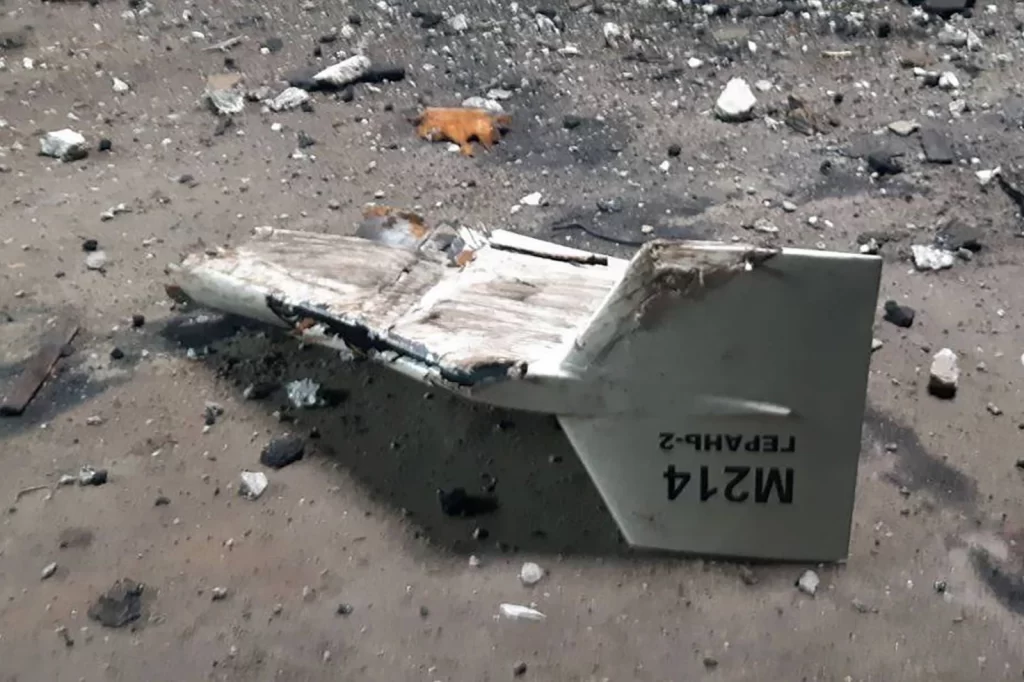
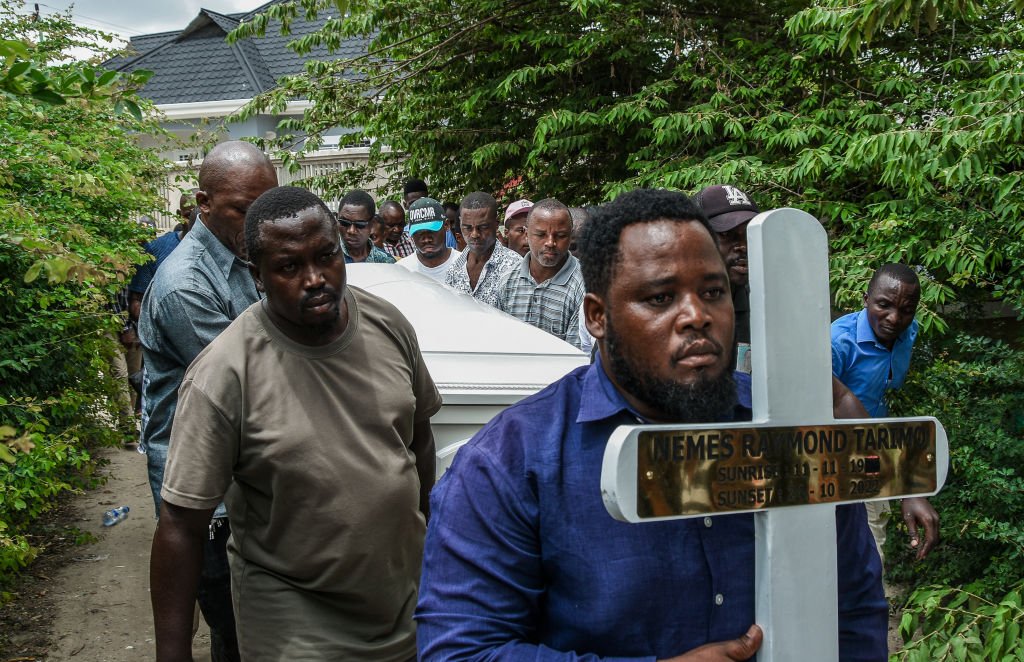
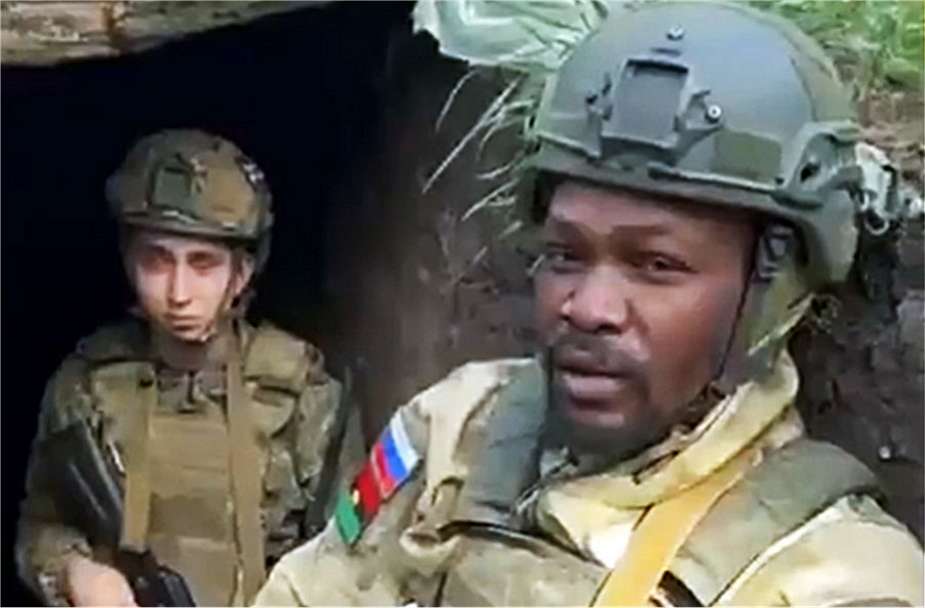
More on this story: Kremlin’s Colonial and Racist Policies in Africa


